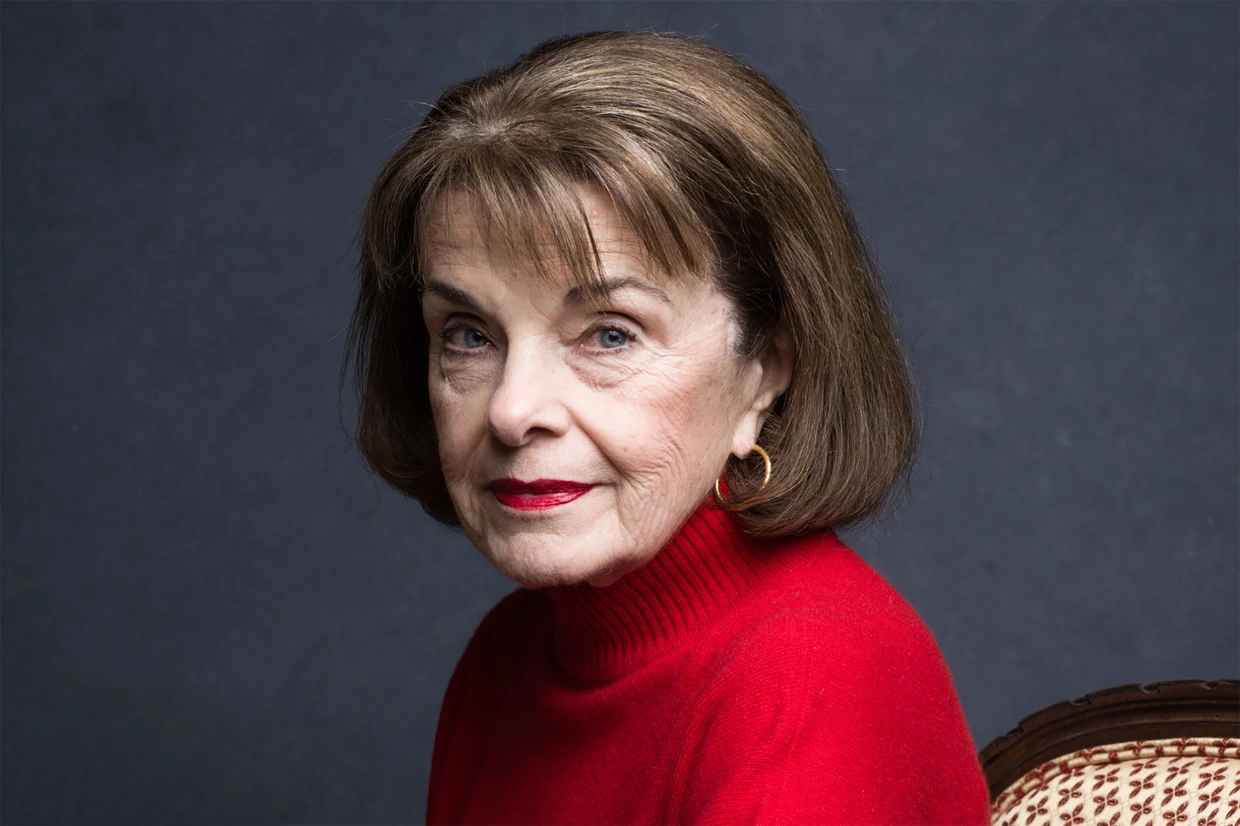Sen. Dianne Feinstein, a trailblazer in U.S. politics and the longest-serving woman in the Senate, dies at age 90
[anvplayer video=”5193901″ station=”998131″]
WASHINGTON — Sen. Dianne Feinstein, D-Calif., a vocal advocate of gun-control measures who was known for trying to find common ground with Republicans during her three decades in the Senate, has died, according to two sources familiar the matter. She was 90.
Feinstein, the oldest member of the Senate, the longest-serving female senator and the longest-serving senator from California, announced in February that she planned to retire at the end of her term. She had faced calls for her resignation over concerns about her health.
After she announced her retirement, President Joe Biden hailed his former Senate colleague, calling her “a passionate defender of civil liberties and a strong voice for national security policies that keep us safe while honoring our values.”
“I’ve served with more U.S. Senators than just about anyone,” he said in a statement at the time. “I can honestly say that Dianne Feinstein is one of the very best.”
After Feinstein missed votes in late February, her spokesperson said on Wednesday, March 1, “The senator is in California this week dealing with a health matter,” and “hopes to return to Washington soon.”

Sen. Dianne Feinstein, D-Calif., poses in Washington on Jan. 4, 2019.Celeste Sloman for The New York Times via Redux
The California Democrat was a vocal advocate of gun-control measures, championing the assault weapons ban that then-President Bill Clinton signed into law in 1994, and pushing for restrictive laws since the ban’s expiration in 2004.
As chairwoman of the Senate Intelligence Committee, Feinstein led a multiyear review of the CIA’s detention and interrogation program developed after the Sept. 11, 2001, terrorist attacks, which led to legislation barring the use of those methods of torture.
A centrist Democrat, she was known for trying to find common ground with Republicans, sometimes drawing criticism from her party’s liberal members. She parted from them on a number of issues, including opposing single-payer, government-run health care and the ambitious Green New Deal climate proposal, which she argued was politically and fiscally unfeasible.
Those tensions with progressives built to a head during the confirmation hearings for Supreme Court nominee Amy Coney Barrett in October 2020 when Feinstein hugged Senate Judiciary Committee Chairman Lindsey Graham, R-S.C., and thanked him for how he had conducted the hearing. The move prompted swift calls for Feinstein’s ouster as the ranking member of the panel, and she ultimately did step down.
Feinstein preferred following Senate traditions than changing them, though she voiced openness in 2021 to potentially altering filibuster rules if Democrats were unable to pass key parts of their legislative agenda, including voting rights reforms, gun control and a reauthorization of the landmark Violence Against Women Act.
Feinstein faced some pressure to resign in recent years to make way for younger lawmakers. Last April, Feinstein pushed back against a news report in the San Francisco Chronicle citing multiple anonymous colleagues expressing worry that she was mentally unfit to serve. “I remain committed to do what I said I would when I was re-elected in 2018: fight for Californians,” she said then.
Democratic Reps. Katie Porter, Adam Schiff and Barbara Lee are running for Feinstein’s seat.
Feinstein was hugely influential in state and national politics, and her support held great weight. She expressed to California Gov. Gavin Newsom, for example, that she wanted Alex Padilla, then California’s secretary of state, to fill Kamala Harris’ seat in the Senate after Harris was elected vice president, a request that Newsom fulfilled.
Before her election to the Senate in 1992, Feinstein was elected the first female mayor of San Francisco and, prior to that, was a member and president of the city’s Board of Supervisors. She became mayor after the assassinations of Mayor George Moscone and city Supervisor Harvey Milk, the first gay elected official in California.
Thrice married, Feinstein was predeceased by her husband, investment banker Richard Blum, who died last year. She is survived by her daughter, Katherine Feinstein, a San Francisco County Superior Court judge; her son-in-law, Rick Mariano; and her granddaughter, Eileen Feinstein Mariano.